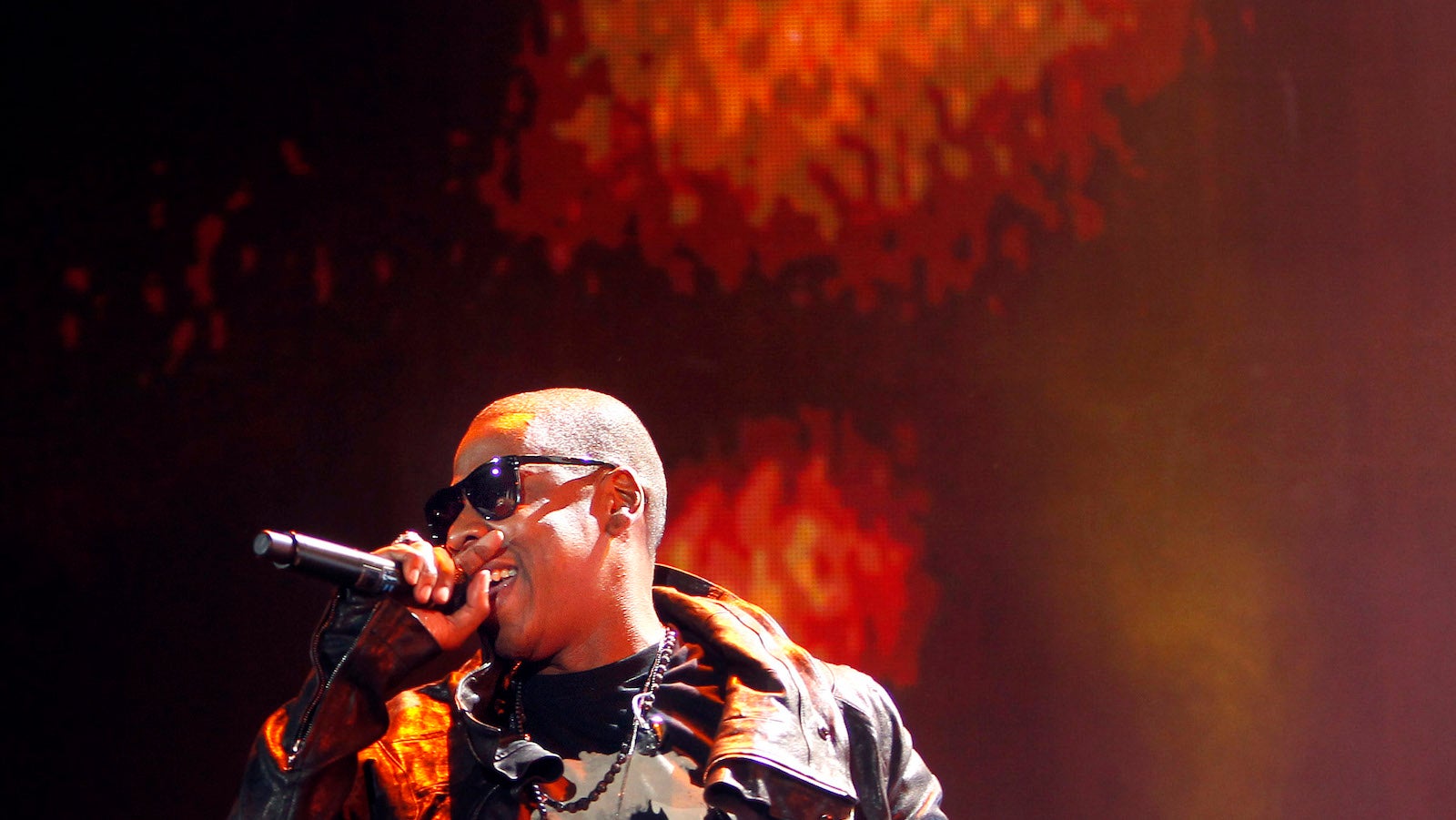Jay-Z’s stand against free music may be costing him $1 million a week
Jay-Z’s latest album, 4:44, started off as an exclusive to Tidal, the streaming company he owns, and is now available on Amazon and Apple Music as well—but not Spotify.


Jay-Z’s latest album, 4:44, started off as an exclusive to Tidal, the streaming company he owns, and is now available on Amazon and Apple Music as well—but not Spotify.
The rapper pulled his catalog from the music streaming service a few months ago, following in the footsteps of several other artists unhappy with Spotify’s free, ad-supported platform, which pays less to musicians than services that are run on a subscription business model. (Spotify has both a paid tier and a free one, compared to the paid-tier-only Amazon Music and Apple Music.) While some artists like Taylor Swift have since sighed in defeat and reinstated their albums on Spotify, probably due to the fact that it’s still the most popular streaming service in the world, Jay is holding out.
And it might be costing him close to $1 million a week, according to calculations made by Billboard.
According to some industry insiders speaking to the publication, that’s around the amount that other prominent artists make from Spotify in the initial weeks of a hot new album release. (After not charting at all in its first week as a Tidal exclusive, the album has been number one for the past two weeks—and that’s without Spotify, the biggest streaming service in the world.) Others have more modest analyses, saying Jay-Z would only pocket about $250,000 of royalties per week. Either way, it would seem there’s a significant amount of money being lost from the rapper holding 4:44 off of Spotify.
Until, that is, you consider how rich Jay-Z already is. His net worth is already estimated at $810 million, and that number climbs to $1.16 billion when factoring in the wealth of the other member of his household (Beyoncé). Streaming is not a lucrative revenue stream in the first place: Beyoncé, for instance, was the highest-paid musician in 2016 and barely made 3% of her money from streams.
Jay-Z has long understood that the real money these days is not in making music itself—his purchase and turn-around of Tidal is one example, his venture-capital fund is another, and just look at the litany of corporate deals the rapper has struck in the last two decades if you’re not convinced. He may be losing millions from taking a stance against Spotify, but he’s also in a position to do so. And by holding out, he’s speaking up for all the less wealthy artists who also disagree with Spotify’s business model but don’t have a choice but to submit to it.